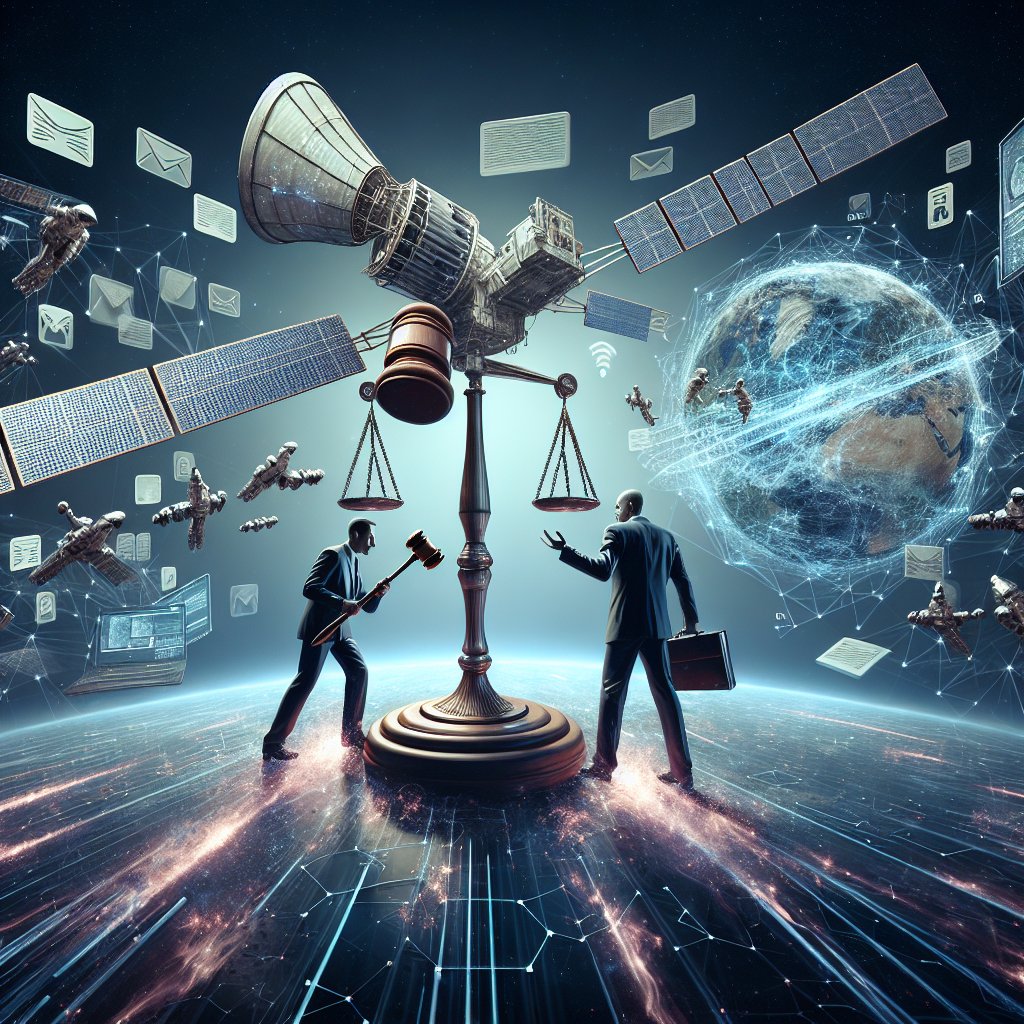Image created by AI
Elon Musk Labels Brazilian Supreme Court Judge a "Dictator" Amid Starlink Controversy
Elon Musk, the billionaire tech entrepreneur, sharply criticized Brazilian Supreme Court Justice Alexandre de Moraes on social media, denouncing him as a "dictator." This rebuke follows reports and concerns over free speech and censorship in Brazil, specifically regarding the operation of Musk's satellite internet company, Starlink, in the country.
The controversy was ignited by a sequence of events where Justice Alexandre de Moraes ordered the suspension of Starlink's financial operations for not appointing a local legal representative, despite a 24-hour compliance window. Local media suggest the blockade is a repercussion of Starlink's reported noncompliance with Brazilian legal directives to block certain user accounts. These user accounts are under scrutiny for disseminating false information and hate speeches.
In early statements, Starlink had announced intentions to shutter its Brazilian offices, citing "censorship orders" from Justice de Moraes as the reason. They assured, however, that the service would continue to be accessible to users within Brazil. Starlink painted a grim picture, claiming their legal representative in Brazil was covertly intimidated with arrest threats by Justice de Moraes to force compliance concerning the removal of specific content from the platform.
The Brazilian Supreme Court, emphasizing the enforcement of the country's cyber regulations, mentioned that non-adherence to Brazilian laws could result in the suspension of a company's activities. The decision was publicized via the court's social media channels, tagging Musk and Starlink's accounts directly.
Musk responded aggressively, voicing his disillusionment with Justice de Moraes on social media and went as far as to confront Brazilian legal impositions on his messaging platform, calling them "unconstitutional." In earlier instances this year, after the Justice instructed the blocking of accounts tied to "digital militias" investigated for spreading misinformation and hate messages during Jair Bolsonaro's presidency, Musk openly challenged these decisions and signaled his intention to reactivate the banned accounts.
An inquest into Musk's defiance and the operations of his social media platform was subsequently initiated by Justice de Moraes in April. In an apparent about-face, representatives for Musk's platform declared their intent to comply with court decisions. Still, in a later judicial exchange, Moraes pursued explanations for alleged non-completion of his orders. Starlink, on its part, cited "operational faults" that resulted in the continued activity of the user accounts in question.
The combative stances underscore escalating tensions between Musk's stance on free speech, his business interests, and the Brazilian court's efforts to regulate online content. This clash over digital autonomy versus legal oversight poses broader implications for tech companies operating in jurisdictions with differing views on internet governance and content moderation.










